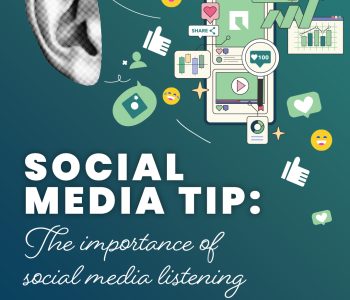
Social media listening involves monitoring digital conversations to understand what customers are saying about your brand and industry online. It’s not just about tracking mentions; it’s about analyzing the sentiment and context behind those mentions to gain valuable insights.
Effective social media listening helps businesses stay attuned to customer needs, preferences, and pain points, which in turn enables you to respond proactively and strategically.
How is Social Listening Useful?
Social media listening is an essential tool for businesses looking to stay competitive and maintain strong relationships with their customers. This guide highlights key ways social media listening can strengthen your brand and its impact:
- Identify Customer Pain Points & Needs
By analyzing social media conversations, businesses can spot recurring customer complaints and dissatisfaction. This insight will help address pain points, improve products or services, and show responsiveness to customer feedback. - Monitor Brand Reputation
Monitoring brand mentions helps manage public perception. If a negative comment or crisis emerges, social media listening enables businesses to respond quickly to minimize damage. It also amplifies positive feedback and testimonials. - Track Industry Trends & Competitors
Staying current with industry trends and competitor actions is vital for a competitive edge. Social media tools track key topics, identify trends, and monitor competitors’ strategies, offering valuable insights. - Improve Customer Engagement
Understanding social media conversations allows for meaningful, personalized engagement. Responding to feedback and joining discussions shows that your brand values its customers, building loyalty and trust. - Take the Conversation to Your Audience
Using social listening tools, you can identify where your customers are talking about you the most and then use those platforms to respond. For example, if you find that most of the conversations about your brand are happening on TikTok, it could be a good sign that this platform should be a focal part of your strategy. - Inform Content Strategy
Social media listening reveals the topics and formats that resonate most with your audience. By analyzing popular themes, you can align your content strategy with audience preferences to increase engagement and relevance. - Enhance Product Development
Customer conversations offer direct insights into desired features or improvements. This feedback is crucial for guiding product development and innovation to better meet customer expectations. - Measure Campaign Effectiveness
Tracking mentions, sentiment, and engagement helps measure campaign success. Social media listening provides real-time data to adjust and optimize future campaigns based on audience response. - Identify Influencers and Advocates
Social media tools identify individuals who positively mention your brand or have influence within your industry. Engaging with these advocates can boost your reach and credibility through their networks. - Improve Crisis Management
In a crisis, real-time social media listening helps address negative mentions or misinformation quickly. A prompt response can prevent escalation, maintain audience trust, and show that your brand is proactive and responsible.
How to Social Listen
Almost any social media management platform will have some form of social listening feature included in your plan or for an upgraded price. Setting up Google Alerts is a very basic (and free) way to start social listening. A Google Alert will do just that – alert you any time your provided keyword is mentioned in places that cross Google. You can set these up to alert you as-it-happens, once a day, or once a week. It will only alert you of new mentions, and you can narrow it down via sources, regions, and language.
Social media listening is a powerful tool for brands to stay connected with their audience and maintain a competitive edge. Whether you’re using advanced social media management tools or simple methods like Google Alerts, incorporating social listening into your business practices is essential for long-term success and customer loyalty.

